Impact Alzheimer’s Disease
Intro
Welcome to the blog on Alzheimer’s disease, a progressive neurological disorder that affects millions of individuals globally. Alzheimer’s illness is attributed to 60% to 80% of dementia cases.
This debilitating condition gradually impairs memory, thinking skills, and behavior, subsequently affecting daily life and independence.
First recognized by German doctor Alois Alzheimer, this disease is a pressing public health concern due to its prevalence and profound effects on individuals and their families.
The global population is expected to age rapidly, leading to a rising number of those with Alzheimer’s.
Consequently, healthcare practitioners, researchers, caregivers, and society, in general, must gain a comprehensive understanding of this complex condition.
This journal explores the latest scientific discoveries, treatment options, caregiving tips, and personal stories related to Alzheimer’s disease.
The purpose of this site is to share valuable information and insights, encourage dialogue with those who have Alzheimer’s, and contribute to the overall effort toward battling this dreadful disorder.
Join us on this journey and strive towards a better future for those with Alzheimer’s.
Together with Alzheimer’s disease, they can profoundly impact and significantly improve the quality of life for those living with the condition.
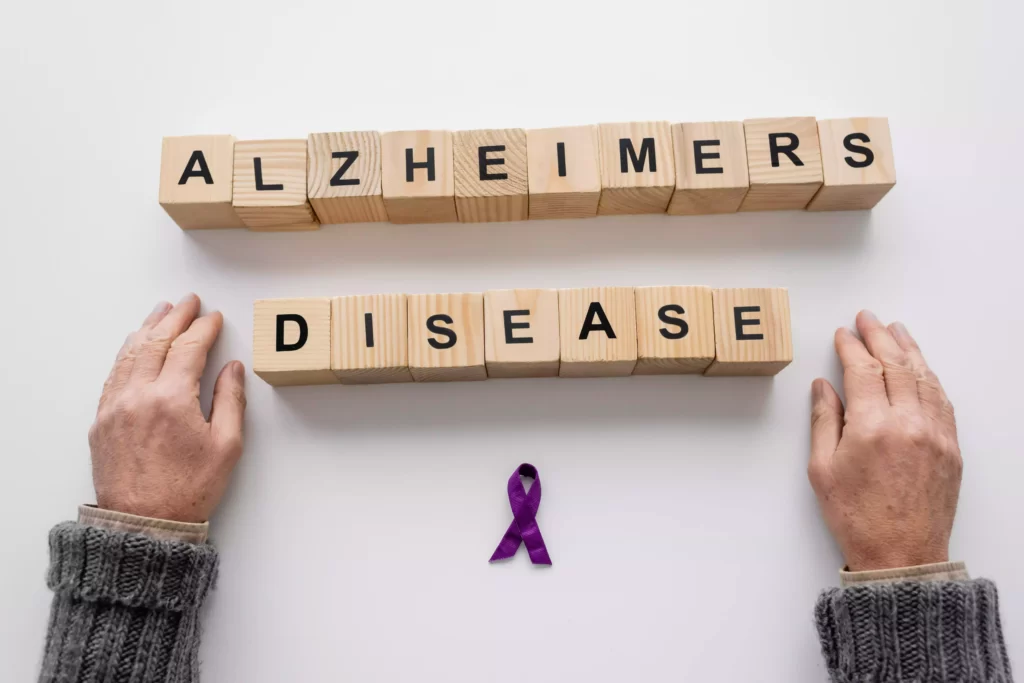
Understanding the Progression and Challenges
Alzheimer’s disease is characterized by a progressive neurodegenerative disorder that significantly affects individuals, families, society, and the environment.
It is among the other causes of dementia and affects millions globally.
The global population is expected to increase, which means that the number of people living with Alzheimer’s will increase.
Experiencing its complex progress is crucial for healthcare providers, researchers, and caregivers.
The disease develops in different stages, affecting memory, cognitive function, behavior, and independence.
Individuals face difficulties in daily living activities, communication, and emotional well-being.
Caregivers often suffer from significant physical and emotional pain. Current approaches tend to emphasize symptom management, supportive care, and behavioral support.
However, more research and consent are required to address the growing burden of Alzheimer’s disease.
Prevalence and demographics
Alzheimer’s disease, a progressive neurodegenerative disorder, is a significant public health concern due to its widespread impact on individuals and their families.
Alzheimer’s disease is believed to be responsible for 60 to 80 percent of dementia cases.
As the global population ages, the population affected by this disease will multiply exponentially in the coming years.
A thorough understanding of Alzheimer’s disease is crucial for healthcare providers, researchers, caregivers, and society.
By understanding the prevalence, demographics, and aspects of Alzheimer’s disease, professionals can better plan and implement interventions to enhance the lives of those affected.
The Stages of Alzheimer’s Disease
Alzheimer’s disease progresses through distinct stages, presenting different characteristics and challenges for individuals and their loved ones.
The early stages are characterized by mild cognitive impairment, where memory lapses and confusion may be apparent.
As the condition progresses, moderate Alzheimer’s manifests with more significant pronounced memory loss, difficulty with language, and behavioral changes.
During the severe phase, individuals may experience difficulty communicating and attempting to perform basic self-care tasks.
Additionally, there may be significant personality changes. Eventually, end-stage Alzheimer’s requires continual care and assistance.
Knowing these stages, TICENS healthcare professionals can better tailor interventions and support to patients and their families, empowering them to navigate the challenges with greater insight and understanding.
Mild cognitive impairment and early-stage Alzheimer’s
Mild cognitive dysfunction (MCI) and early-stage Alzheimer’s disease are the initial phases of this progressive neurological disorder.
During this phase, individuals may experience memory lapses, difficulty focusing, and mild changes in behavior.
Even though some individuals may still be able to engage in daily activities, remembering names, appointments, or recent events may require extra effort.
Early-stage Alzheimer’s is accompanied by gradually diminishing cognitive abilities, leading to individuals becoming increasingly forgetful and having difficulty with problem-solving and decision-making.
Healthcare professionals and caregivers must identify and address these early signs, as early intervention and receiving support improve the quality of life for affected individuals.
Moderate Alzheimer’s disease
Moderate Alzheimer’s disease is when symptoms become more pronounced and significant cognitive decline occurs.
Memory loss worsens, and individuals may struggle to recognize family and friends.
Communication and language skills are impaired, making expressing thoughts and understanding others challenging.
As time goes by, performing daily activities like getting dressed, taking a bath, and preparing meals becomes more challenging to do on your own.
Managing specific behavioral and psychological symptoms, like agitation, aggression, and others, can be difficult on your own.
The progression of the disease demands increased support and care, placing a significant burden on caregivers and impacting the overall quality of life for individuals with Alzheimer’s and their loved ones.
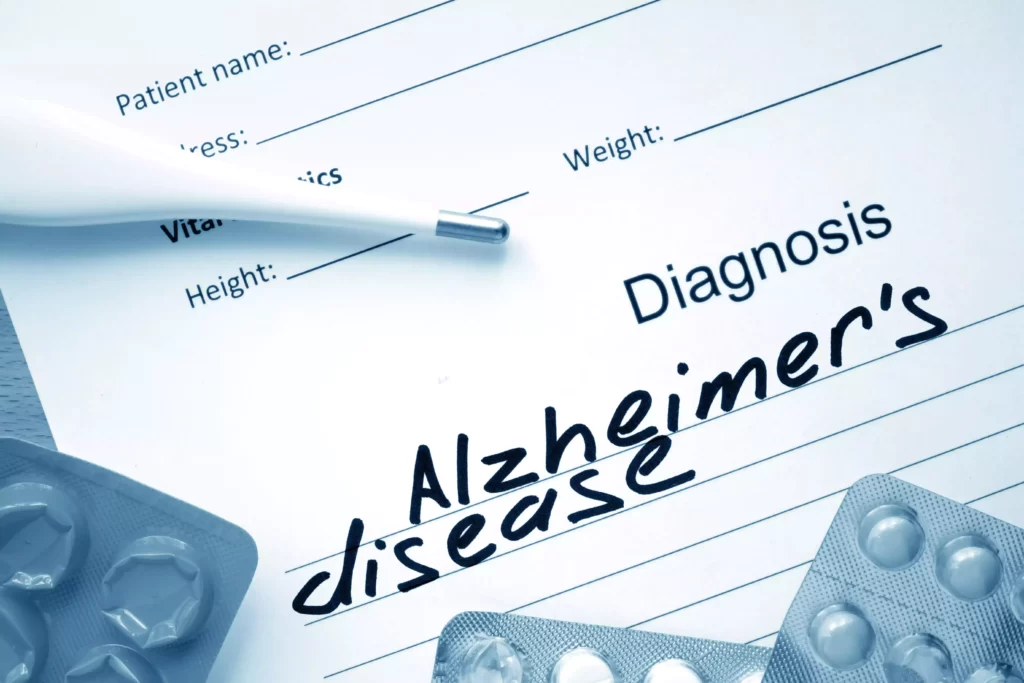
Severe Alzheimer’s disease and end-stage
Severe Alzheimer’s disease is an advanced stage of this debilitating neurological disorder.
In this stage, individuals suffer from profound memory loss and cognitive decline, making identifying and engaging in meaningful conversations challenging.
Additionally, these individuals may experience difficulty with basic self-care tasks and require 24-hour assistance.
Until the disease reaches its end stage, individuals become significantly more dependent on others for their daily needs.
The patient may lose their ability to speak, walk, and swallow, resulting in complications such as pneumonia.
Ensured comfort and overall well-being are essential for individuals experiencing this stage.
Progression of Alzheimer’s Disease
Alzheimer’s disease is characterized by a progressive neurodegenerative disorder that progresses gradually and adversely affects memory, thinking skills, and behavior.
The condition went through various phases, starting with mild cognitive impairment and moving up to moderate and severe stages.
Memory loss exacerbates, and cognitive impairment is more pronounced, complemented by behavioral and psychological symptoms.
As Alzheimer’s progresses, individuals with Alzheimer’s face challenges in daily living activities, communication, and sustaining social interactions.
Caregivers and family members undergo significant emotional and physical tolls. Current treatment approaches emphasize symptom management and supportive care.
There is a need to boost research, public awareness, and advocacy to deal with the impact and challenges of Alzheimer’s disease.
Promising developments hold hope for earlier detection, prevention, and potential breakthroughs in understanding and treating the disease.
Changes in memory and cognitive function
Alzheimer’s disease is a disorder that progressively damages the brain, causing significant impacts on a person’s memory and cognitive abilities.
As the condition progresses, individuals may have difficulty remembering recent events, struggle with problem-solving and decision-making, and communicate effectively.
When memory and cognitive skills are affected, it can result in the need for more assistance with daily activities and a decrease in self-reliance.
Healthcare practitioners and caregivers must comprehend these changes and implement strategies to assist those with Alzheimer’s.
Furthermore, early detection enables intervention to help alleviate symptoms and enhance patients’ and their families quality of life.
Behavioral and psychological symptoms
During the progression of Alzheimer’s disease, individuals commonly experience a range of behavioral and psychological symptoms.
These symptoms may manifest as agitation, aggression, anxiety, depression, or hallucinations.
As dementia progresses, individuals may also experience personality changes and socially inappropriate behaviors.
These symptoms may be challenging for those with Alzheimer’s disease and their caregivers.
Healthcare professionals must manage these symptoms through non-pharmacological interventions and, in some cases, medication management.
Knowledge and management of these behavioral and psychological symptoms are crucial in delivering quality care.
Our goal is to improve the well-being and quality of life of those with Alzheimer’s.
Physical impacts and challenges
One of the critical challenges associated with Alzheimer’s disease is its physical impact on individuals.
Patients may encounter difficulties with motor skills and coordination as the disease progresses.
Simple tasks like walking, eating, and dressing may become more challenging.
In advanced phases, individuals may develop bedridden and experience issues like muscle weakness, contractures, and pressure sores.
Furthermore, there is a higher risk of falls and fractures.
These physical injuries can lead to a decline in overall health and pose significant challenges for caregivers in providing adequate support and sustaining the individual’s comfort and quality of life.
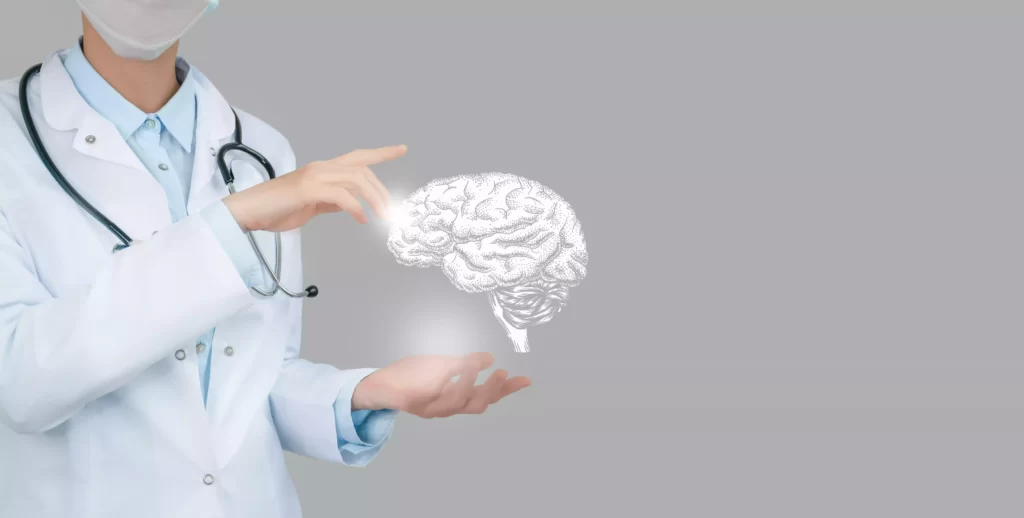
Challenges for Individuals with Alzheimer’s Disease
Individuals with Alzheimer’s face numerous challenges as the condition progresses and improves.
Memory loss and cognitive decline affect their ability to engage in daily activities and remain independent.
Their communication skills decrease, making expressing their needs and relating with others difficult.
Emotional well-being and quality of life are also affected, as individuals may feel confusion, frustration, and anxiety.
The challenges associated with Alzheimer’s require specialized care and support to promote overall well-being.
Additionally, healthcare professionals are essential in providing tailored interventions to alleviate symptoms, engage individuals, and facilitate the highest possible quality of life for these individuals.
Daily living activities and independence
Living activities and independence are significantly associated with Alzheimer’s disease.
As the disease progresses, simple tasks such as bathing, dressing, and preparing meals become more challenging.
This loss of independence impairs the individual’s sense of autonomy and burdens their caregivers and loved ones.
To overcome this challenge, healthcare professionals are indispensable in providing support and assistance and facilitating strategies that ensure safety and independence are preserved for as long as possible.
Communication and social interaction
Individuals with Alzheimer’s disease typically have difficulties communicating and engaging in social interaction.
As Alzheimer’s disease progresses, individuals may experience difficulty in finding the right words, sharing their thoughts clearly, or comprehending others.
It can result in frustration, isolation, and reduced social interactions. It is recommended that healthcare professionals and caregivers use clear and simple language, provide visual aids and cues, and establish supportive environments to aid individuals with Alzheimer’s in establishing meaningful connections with others.
Furthermore, support groups designed for individuals with Alzheimer’s play a crucial role in reducing social isolation, and stimulating cognitive stimulation is essential.
Emotional well-being and quality of life
Emotional well-being and quality of life are significant challenges faced by those with Alzheimer’s disease.
As Alzheimer’s disease progresses and affects individuals’ mood, personality, and behavior, there can be a pronounced increase in anxiety, depression, and agitation.
It can feel distressing for the individuals and their caregivers as the person they once knew may suddenly become unrecognizable.
Additionally, Alzheimer’s disease can severely limit the individual’s abilities to engage in once-used activities, resulting in a decreased sense of fulfillment and quality of life.
Addressed emotional well-being can improve overall care and support for individuals with Alzheimer’s.
Challenges for Caregivers and Families
Caregivers and families face numerous challenges when caring for those diagnosed with Alzheimer’s.
The role of caregivers involves immense patience, empathy, and understanding. Providing care can have a substantial impact on one’s emotional well-being.
It’s challenging to manage the daily care of loved ones while watching their gradual decline.
Caregivers often face difficulties balancing providing the necessary care and preserving their well-being.
Caregivers, families, and individuals must locate the resources available to provide support, including support groups and respite care services, to alleviate the challenges that arise.
Proper assistance and comprehension are crucial in overcoming the difficulties that caregivers and families face during this journey with Alzheimer’s disease.

Role and responsibilities of caregivers
Caregivers are tasked with providing vital support and assistance to individuals with Alzheimer’s disease.
They manage daily activities, ensure safety, and deliver emotional support. Caregivers must demonstrate patience, empathy, and excellent communication skills to combat this progressive disease.
Furthermore, caregivers must become informed about Alzheimer’s, its symptoms, and strategies for managing behavioral changes.
Caregivers need to maintain a professional and compassionate approach when working with individuals with Alzheimer’s, aiming to promote their well-being and preserve their dignity throughout the course of the disease.
Support and resources for caregivers
Support and resources for caregivers are crucial in coping with the challenges of Alzheimer’s disease.
Caregivers are tasked with assisting those with Alzheimer’s but often struggle with emotional and physical exhaustion.
Hence, it is imperative to provide them with professional support.
It can be accomplished through caregiver support groups, counseling services, and educational programs that provide guidance and strategies for coping with the disease.
Additionally, respite care offers caregivers a much-needed break from their caregiving responsibilities.
By equipping caregivers with sufficient support and resources, those living with Alzheimer’s disease can more effectively manage and maintain their well-being.
Current Approaches to Treatment and Care
Current approaches to treating and supporting Alzheimer’s include a multidimensional approach aimed at reducing symptoms, providing support, and extending the quality of life for those who suffer from the condition.
Pharmaceutical interventions, such as cholinesterase inhibitors and methyl memantine, are commonly used to control cognitive decline.
Nonetheless, these medications are limited in their benefits and cannot slow disease progression.
Non-pharmacological interventions, including mental stimulation, physical exercise, and social engagement, have shown promise in enhancing cognitive function and overall well-being.
Additionally, palliative and supportive care approaches address the physical, emotional, and social challenges faced by individuals with Alzheimer’s disease and their caregivers.
Current research and advancement in the field hold out hope for increasingly effective treatments and potential breakthroughs shortly.
Medications for symptom management
Medications specifically designed for symptom control are essential in overcoming the challenges of Alzheimer’s disease.
These medications are intended to treat symptoms such as memory loss, confusion, and changes in behavior. Chemical esterase inhibitors, such as donepezil, rivastigmine, and galantamine, are typically used to improve memory and cognition.
Additionally, methylphenidate may be used to manage moderate-to-severe symptoms by controlling glutamate activity in the brain.
Nevertheless, it is crucial to emphasize that these medications are not intended to cure Alzheimer’s; instead, they aim to improve the quality of life and slow down the progression of symptoms.
Healthcare practitioners must stay up-to-date on the latest medication options for optimal care for those with Alzheimer’s disease.

Palliative and supportive care
Palliative and supportive care plays an essential role in overcoming the challenges faced by those with Alzheimer’s disease.
These approaches are focused on providing comfort, relieving symptoms, and enhancing patients’ overall quality of life.
Skilled healthcare providers offer physical, emotional, and social support to individuals with Alzheimer’s and their caregivers.
It may include assistance with daily living, therapy to improve cognitive function, and counseling to manage the emotional impact of the disease.
By integrating palliative and supporting care into the treatment plan, healthcare providers can assist individuals with Alzheimer’s to preserve their dignity and enhance their well-being.
Non-pharmacological interventions
Non-pharmacological interventions are essential in the management of Alzheimer’s disease.
These approaches focus solely on non-drug therapies; our goal is to enhance the quality of life for people with Alzheimer’s disease and their caregivers.
They encompass various strategies, such as cognitive stimulation therapy, physical activity, music therapy, and art therapy.
These interventions are believed to slow cognitive decline, improve communication, reduce behavioral symptoms, increase well-being, and improve overall health.
Moreover, these interventions allow individuals living with Alzheimer’s to feel empowered and engaged, thereby allowing them to maintain independence and dignity.
As healthcare practitioners, it is crucial to identify and effectively implement these interventions to optimize patient and family outcomes.
Conclusion
In conclusion, Alzheimer’s disease continues to be a prevalent concern today.
Alzheimer’s disease has a devastating impact on memory, cognition, and overall independence; therefore, healthcare providers, researchers, caregivers, and society must comprehend and address the challenges presented by this progressive neurological disorder.
As the world population ages, the prevalence of Alzheimer’s is expected to increase exponentially.
Efforts should be made both to support those living with Alzheimer’s and their caregivers, as well as to facilitate research and awareness.
Promising developments in treatments and care may offer hope for the future; however, persistent advocacy and bundled study are essential to combat this disease.








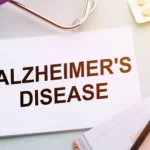



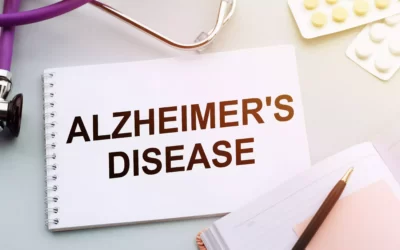

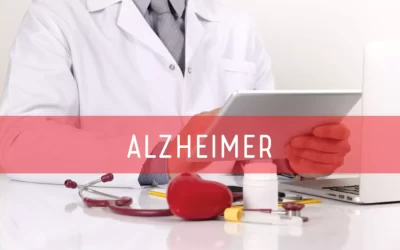
0 Comments